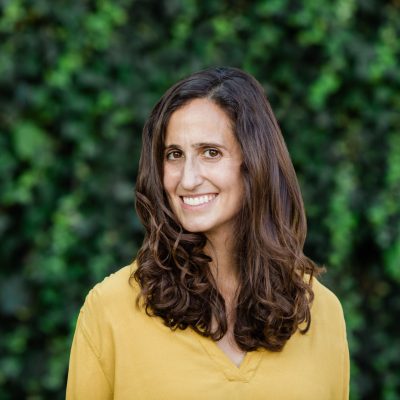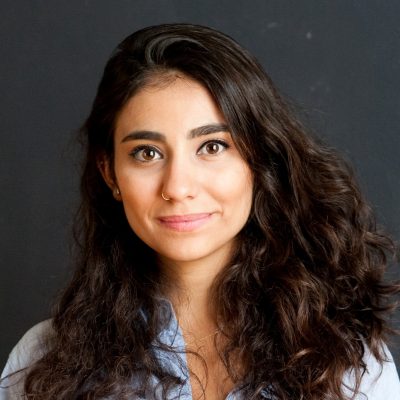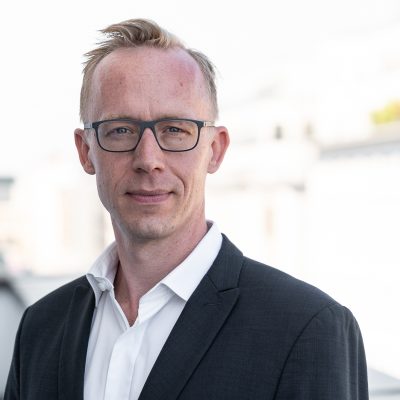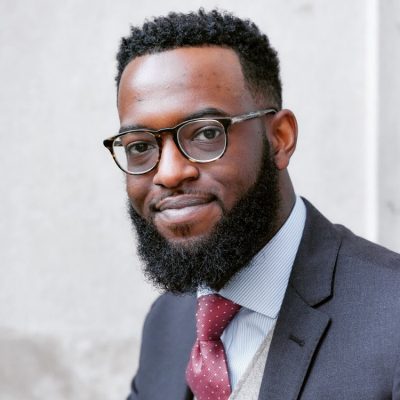Article
“For me, the key to staying grounded and committed is always remembering the incredible privilege and opportunities I have been given to do this work. I think about my foster siblings, and I feel that I have a responsibility to them to always be fighting to reduce inequality.”
Priya Fielding-Singh is a sociologist and ethnographer. She is currently the Director of Policy and Programs at the Global Food Institute at the George Washington University. Previously, she served as a Senior Manager of Research and Education at the Sandberg Goldberg Bernthal Family Foundation and as a tenure-track Assistant Professor in the Department of Family and Consumer Studies at the University of Utah. Her work is at the intersection of family, gender, and inequality, with a focus on maternal and child health and well-being.
Priya Fielding Singh has devoted her professional career to studying inequality – a concept she first encountered at the age of nine when her family became a foster family. She says, “I am passionate about the work that I do every day. For me, the key to staying grounded and committed is always remembering the incredible privilege and opportunities I have been given to do this work. I think about my foster siblings, and I feel that I have a responsibility to them to always be fighting to reduce inequality.”
Studying education and social policy as an undergraduate at Northwestern University, Priya was interested in how structures of inequality and discriminatory policies shaped people’s life trajectories, in hopes of finding solutions to what she witnessed her foster siblings endure. Following her Bachelor’s degree, Priya moved to Germany to conduct research on educational barriers and mobility amongst 2nd and 3rd generation German Turks in Berlin, and to pursue a Master’s in Cultural Studies.
“I wanted to connect to an international network of activists and advocates that would inspire and challenge my work moving forward.”
 As she was finishing her graduate degree and preparing to return to the United States for a doctorate program, she discovered the Humanity in Action Fellowship. It was a perfect way to tie together her work in Germany with work she hoped to do in the United States and to connect her to an international network of activists. For Priya, the Fellowship was one of the most impactful experiences of her life. It exposed her to varied perspectives, historical narratives, and transnational connections that she continues to reflect upon today. Her experience through Humanity in Action drove her to continue down the path of activism. She is committed to conducting research that matters.
As she was finishing her graduate degree and preparing to return to the United States for a doctorate program, she discovered the Humanity in Action Fellowship. It was a perfect way to tie together her work in Germany with work she hoped to do in the United States and to connect her to an international network of activists. For Priya, the Fellowship was one of the most impactful experiences of her life. It exposed her to varied perspectives, historical narratives, and transnational connections that she continues to reflect upon today. Her experience through Humanity in Action drove her to continue down the path of activism. She is committed to conducting research that matters.
“Because what we eat impacts our health – and our health influences whether we can get an education, hold down a job, or raise a family – our diets are a central part of the story of inequality today.”
As her Action Project, Priya co-directed the annual Childhood Obesity Bay Area conference from 2012 to 2016, which brought together 200 local scholars, practitioners, activists, and students to discuss the latest trends, challenges and opportunities for preventing and treating childhood obesity. Priya continued her work on health disparities at the Stanford University School of Medicine as a National Institute of Health (NIH) Postdoctoral Research Fellow. She was also a Researcher at the Stanford Center on Poverty and Inequality as part of the team that launched the American Voices Project, which served as the nation’s first qualitative census. Priya is currently an Assistant Professor of Family and Consumer Studies at the University of Utah, where she researches and writes about issues of social and economic justice, with a focus on families, food and health.
Through Humanity in Action, Priya has met lifelong friends and colleagues who continue to inspire and challenge her every day. While she used to reach out to older Senior Fellows for career advice and insights, Priya now finds herself being contacted by younger Fellows interested in her field. It is also this intergenerational potential that excites her about the future of Humanity in Action.
Updated September 2025




